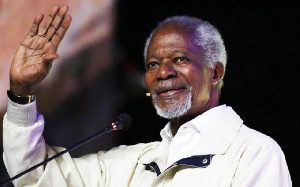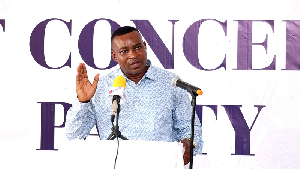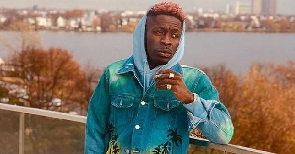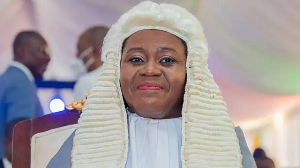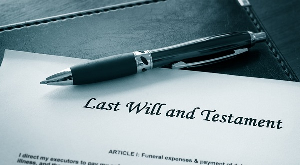As an American born to Ghanaian parents, I recall my parents would engage in in-depth conversations about Kofi Annan, a shrewd part Ashanti, part Fante man, who was the child of a prominent tribal chief. I can’t remember the specifics of their discussions, but whenever they spoke his name, they did so with pride. His name – Kofi Annan – held some form of power inexplicable to me. I didn’t quite understand why.
Years later, in 2018, I left my comfort zone in the U.S. and moved back to Ghana, where Mr. Annan was born. My decision was varied. And I’ll admit this much: initially, it was for selfish reasons. I needed a new challenge. I knew I had a skill in storytelling and I knew that in Africa, there are stories – lots of them – that need to be told. For me, moving abroad would broaden my international perspective of life.
But literally within days of living here, I found that the journey wasn’t about me. Ghana has a vibrant scene more beautiful than anything I’ve ever seen in the world. But the country has its downside. I’ve witnessed the human condition in its rawest form. I’ve seen a little boy slumped over dead from drowning in an abandoned dam built with government’s approval. I’ve been to poverty-stricken areas, where people live in containers with no water and electricity. People here die needlessly from dilapidated infrastructure, limited medical equipment, poor food sanitation and bad urban planning. Ghana, like many other emerging markets, needs help. A new comprehensive reform plan could transform the nation. Easy? No. Possible? Absolutely.
That’s what Mr. Annan championed for. For nine years, he headed the United Nations, where he outlined his plan to eradicate poverty, end human rights abuse and maximize international security. Shortly after his appointment as Secretary-General, he won a Nobel Peace Prize for revitalizing the UN, and for highlighting how to combat AIDS on the African continent.
Mr. Annan accepting a Nobel Peace Prize in 2001 for his efforts to instill world peace.
In 2007, he launched a foundation bearing his name, which aimed to find fresh ways to resolve conflict, promote youth leadership and build lasting peace. His foundation has influenced dozens of world leaders and rehabilitated countless countries. Yes, a Ghanaian did that. We should be proud.
“Mr. Annan was a global leader for peace who embodied the values of the United Nations. He was also very kind and caring, and he treated all equally, whether they were kings or refugees,” wrote Jordan Ryan for The New York Times, which asked its readers to speak on the dignitary’s legacy shortly after his death.
From left to right: Former U.S. president Barack Obama, former U.S. Secretary of State HIlary Clinton; former U.S. president Bill Clinton, Mr. Annan and former Chairman of the U.S. Joint Chiefs of Staff, Mike Mullen.
A colleague of Mr. Annan agreed. “More than anything else, it was Annan’s humble demeanor that led him to become one of the most powerful leaders on the world stage,” Emmanuel Kwesi Aning told Joy FM earlier this month.
Mr. Annan was humble, indeed. When The Financial Times asked Mr. Annan how he’s maintained the self-control to hold the highest role for the largest intergovernmental organization in the world, he replied, “Time and age probably have something to do with it,” adding that “I laugh a lot inside and outside, and at myself sometimes.”
Mr. Annan in his younger years speaking back in his home country of Ghana.
There are reports that shortly after he reached a deal with Saddam Hussein to restore nuclear inspectors in 1998, they smoked a cigar together. In Darfur, he sat in a scorching hot shed to meet with locals on the violence ensuing there. He did these things not because he had to, but because he cared – he cared about politicians, the poor and everyone in between.
Mr. Annan will be hard to replace. Leaders of his magnitude come few and far between. But before he left, he requested for the following initiatives to continue:
1) Ensure that every society in the world has sustainable access to clean water
2) Boost food security by improving agricultural productivity and production
3) End drug trafficking and consumption internationally
4) Empower young leaders to serve in their communities both locally and on the national level
5) Mobilize stringent efforts to resolve armed conflict in war-stricken countries
6) Eradicate poverty
Kofi Annan meeting with locals in Darfur in 2004. Source: Getty Images
This list is not exhaustive all of Mr. Annan wants us to achieve, but if small, incremental steps are made, we can one day reach the seemingly intangible task of achieving world peace.
To Mr. Annan, thank you for your tireless exertions as one of the world’s most honoured civil servants. Your work has inspired the generations that followed you and we hope to make you proud.
Opinions of Wednesday, 29 August 2018
Columnist: Zaina Adamu

